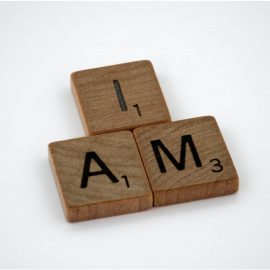

This article is an excerpt from the Shortform book guide to "The One Thing" by Gary Keller. Shortform has the world's best summaries and analyses of books you should be reading.
Like this article? Sign up for a free trial here .
Have you asked yourself the Focusing Question? What is your one thing?
It’s easy to think that the key to success is doing more than anyone else. However, that’s a recipe for spreading yourself too thin and accomplishing nothing significant. Instead, you should focus on a few, right things. It starts with asking yourself the Focusing Question.
Continue reading to learn what the Focusing Question from The One Thing is and how to apply it.
The Focusing Question
We overanalyze and over-plan our careers and lives. We accept feeling overstressed, while following conventional advice for success, including acting and dressing for success, meditating for inspiration, and getting to work before anyone else so we can do more. However, the key to success isn’t doing more than anyone else, but focusing on a few, right things and doing them well.
Andrew Carnegie, whose steel company was the largest enterprise in the world, gave this advice to college students in 1885: “Concentrate your energy, thought, and capital exclusively upon the business in which you are engaged.”
He had observed that the companies that fail are the ones that spread themselves too thin by going in too many directions. “Put all your eggs in one basket, and then watch that basket,” he said. “It’s easy to watch and carry the one basket. It is trying to carry too many baskets that breaks the most eggs in this country.”
The way you determine which basket to pick is by asking the Focusing Question: “What’s the one thing I can do such that by doing it everything else will be easier or unnecessary?”
The Focusing Question is a simple formula for getting answers that lead to exceptional results. It’s both big-picture and small-focus: It requires asking both “What’s my One Thing?” and “What’s my One Thing right now?”
Asking the Focusing Question tells you what basket or goal to choose and also the first step toward attaining it.
Here’s a breakdown of the Focusing Question:
- What’s the one thing I can do: You must choose the vital One Thing out of the many. Besides being specific, your choice must be actionable, something you “can do” versus “should” or “might” do.
- Such that by doing it: This part of the question indicates there’s a criterion your answer must meet. You’re doing something for a specific purpose—when you do One Thing, something else will happen.
- Everything else will be easier or unnecessary: Your one action will be leverage for further action toward accomplishing your goal. After completing your action, the subsequent steps will be easier and some may not be necessary. Many things don’t need to be done if you avoid distractions and start by doing the right thing. Your One Thing will be the first domino.
In summary, the Focusing Question is both big picture and small focus: your One Thing is your big-picture goal, and your One Thing right now is your priority today for getting there.
The Success Habit
The Focusing Question can be a success habit when you make it a way of life. You can ask the question when you start your day, when you get to work, and when you get home: “What’s the One Thing that will have the biggest impact?” With practice, you’ll know whether to use the big-picture or small-focus version.
You can apply it to every area of your life—spiritual, health, personal, relationships, job, and finances—to ensure that you’re doing what matters most. Customize the Focusing Question by inserting your area of focus; you can also include a time frame (this year/month). For instance:
- For my spiritual life: What’s the One Thing I can do to help others (today, this week, this year) such that by doing it everything else will be easier or unnecessary?
- For my job/business: What’s the One Thing I can do to improve my skills (today, this week, this year) such that by doing it everything else will be easier or unnecessary?
- For my health: What’s the One Thing I can do to ensure I exercise (today, this week, this year) such that by doing it everything else will be easier or unnecessary?
- For my relationships: What’s the one thing I can do to strengthen my relationship with my spouse, children, parents (today, this week, this year) such that by doing it everything else will be easier or unnecessary?
- For my finances: What’s the One Thing I can do to eliminate my credit card debt (today, this week, this year) such that by doing it everything else will be easier or unnecessary?
To make the One Thing part of your daily routine:
- Make it a habit—stick with it until it becomes routine. It can become the foundation of future habits.
- Create reminders or cues—post a sign: “Until my One Thing is done, everything else is a distraction.”
- Ask family, friends, and colleagues to respect your time blocks.
Applying the Focusing Question
The Focusing Question helps you identify your One Thing—your big goal and the steps you must take to reach it. Applying the question is a two-step process that leads to extraordinary results:
- Ask an exceptional question that’s big, specific, and measurable.
- Find an exceptional answer through research and finding role models to emulate.
Step 1: Ask an Exceptional Question
An example of a big and specific (exceptional) question is: What can I do to double sales in six months? This is a big goal, with a specific timeframe. Achieving it will challenge you to look beyond the usual solutions.
In contrast, a big question that’s broad rather than specific would be: What can I do to double sales? It’s broad because it lacks a timeframe.
You can go small and broad by asking, What can I do to increase sales?, but this is really a brainstorming question rather than a goal-oriented question. You also could go small and specific: What can I do to increase sales by 5% this year? Although specific, the goal isn’t challenging and will lead to only average results.
So your question must be big and specific to get exceptional results.
Next, turn it into a Focusing Question: What’s the One Thing I can do to double sales in six months such that by doing it everything else will be easier or unnecessary? Now you have to figure out your most important step and start there.
Step 2: Find an Exceptional Answer
Once you’ve asked the Focusing Question, there are three categories of possible answers for your One Thing: doable, a stretch, and a possibility.
The doable answer is easily within your reach, the one likely to be achieved. The stretch answer is also within reach but pushes the envelope for you. Achieving it depends on your effort—you need to extend yourself by researching solutions and finding examples of success to emulate.
The highest achievers choose the third answer—the possible, extraordinary goal that requires going beyond what’s been achieved before. It involves finding a path where none has existed. Accomplishing the extraordinary requires research plus benchmarking and trending:
- Research: Search for ideas and role models to suggest a direction. Ask yourself, has anyone else accomplished this or something like it? Find out what others have learned. Build on their actions.
- Benchmark: Based on your research, you can establish a benchmark for what’s known or been achieved. This would be your maximum if you were looking for a stretch answer, but it’s your minimum for a possible answer.
- From the benchmark, the highest achievement so far, look for the next level you can take it to or for a different direction (trending). The benchmark is today’s optimum, while the trend is tomorrow’s.
This is the path to exceptional achievement. Because you’re breaking new ground, you’ll have to grow and change in the process. But when you achieve the extraordinary, your life becomes extraordinary.

———End of Preview———
Like what you just read? Read the rest of the world's best book summary and analysis of Gary Keller's "The One Thing" at Shortform .
Here's what you'll find in our full The One Thing summary :
- Why focusing daily on one thing, rather than many, is the key to success
- How success is like dominos
- The six common myths about success






